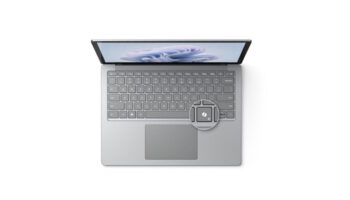What compliance with PCI DSS 4.0.1 means for businesses [Q&A]

The latest revision to the PCI DSS standard for protecting payment data, PCI DSS 4.0.1, was announced last year and came into force last month.
But what do these new requirements mean for businesses? We spoke to Simon Wijckmans, CEO at web security platform c/side, to find out.
Google has lost its ad tech monopoly trial... and Mozilla is scared

In a decision that surprised few, a judge has ruled that Google is guilty of “willfully acquiring and maintaining monopoly power” in advertising technology. Google (or its parent company, Alphabet, at least) is obviously unhappy with the ruling, but it’s not the only one.
Mozilla was one of the first companies to react to the ruling, and CEO Laura Chambers has expressed alarm about what it means for the future of its Firefox web browser. She also voices concerns about the implication of the rules for the open web and online industries.
CISA adds Windows NTLM hash disclosure spoofing flaw to its Known Exploited Vulnerabilities Catalog

A vulnerability in the Windows NTLM authentication protocol, which is known to have been actively exploited for at least a month, has been added to the US CISA’s Known Exploited Vulnerabilities Catalog.
While Microsoft deprecated NTLM last year, it remains widely used. Security researchers discovered the hash disclosure spoofing bug, and Microsoft quietly patched it in March. But the creation of a patch is one thing -- having users install it is something else. By adding the vulnerability, tracked as CVE-2025-24054, to its catalog, CISA is raising aware that action needs to be taken.
Flying high: Ubuntu 25.04 'Plucky Puffin' is here to deliver better performance to desktops and data centers

Canonical has announced the arrival of Ubuntu 25.04 -- "Plucky Puffin." This latest interim release introduces a number of updates across the desktop, as well as developer tools, and improved hardware support, with a focus on boosting performance and improving the user experience.
Ubuntu 25.04 ships with GNOME 48, offering new features like a Preserve Battery Health mode, HDR support, and Canonical’s triple buffering patches, now accepted upstream. A new Wellbeing Panel helps users manage screen time, while a redesigned install and boot experience adds improved partitioning options and experimental Dracut support for faster system startup.
Most enterprise hybrid Active Directory environments have critical vulnerabilities

A new survey of more than 1,000 IT and security professionals carried out for Cayosoft finds that 88 percent of enterprise hybrid Active Directory environments have critical vulnerabilities.
Microsoft Active Directory is a key element of enterprise IT, but the 2025 Active Directory Insights report identifies glaring gaps in resilience, security, and operational efficiency that could leave critical systems exposed to attack.
Credential theft escalates as threat actors use stealthier tactics

Cybercriminals are pivoting to stealthier tactics, with lower-profile credential theft spiking, while ransomware attacks on enterprises have declined.
These are among the findings of a new report from IBM X-Force which also observes an 84 percent increase in emails delivering infostealers in 2024 compared to the previous year, a method threat actors rely heavily on to scale identity attacks.
If you couldn't attend your Zoom meeting yesterday, GoDaddy may be to blame

Zoom going down is more than an inconvenience, it can be catastrophic. The online video meeting tool has become so important since the COVID pandemic, that it is hard to imagine life without it.
But for a significant period yesterday, Zoom was down. Some users were cutting off in the middle of a meeting, while plenty more were unable to connect in the first place. With Zoom out of service for almost two hours, the impact was significant, and the company has now revealed just what went wrong.
Microsoft admits classic Outlook for Windows has a massive resource usage problem

Users of classic Outlook for Windows have been complaining since last year that Microsoft's email client has turned into a massive resource hog. Months later, the company has conceded that the complaints are justified.
Microsoft is eager for everyone to move away from the classic version of Outlook to the newly updated edition of the app, and there have been suspicions voiced that high CPU usage is an underhand tactic to encourage the move. But having acknowledged the problem, Microsoft says that it is working to come up with a fix.
It must be a day with a 'y' in it -- there's a problematic Windows 11 update causing blue screens

Microsoft has once again been forced to mitigate a problem caused by a faulty update for Windows 11 with a Known Issue Rollback (KIR).
The KB5055523 update, release earlier this month is causing BSoDs and a 0x18B error. The same issue applies to the KB5053656 preview update from March. While it used to be possible to refer to KIRs as a rarely used fix for particularly serious issues, it is something Microsoft is falling back on more and more. The problem is, they don’t work for everyone.
deepin Linux 23.1 released with DeepSeek AI support -- Donald Trump’s Chinese tariffs can’t stop open source

Donald Trump may be trying to slow down Chinese imports, but his tariffs are no match for free open source software! You see, Chinese Linux distribution deepin just dropped version 23.1, and no policy can stop it from reaching American citizens. With a ton of awesome updates and refinements, this new version delivers both improved stability and better ease of use. So what that it comes from our friends in China?
The heart of this update lies in major kernel upgrades to versions 6.6.84 and 6.12.20, delivering enhanced compatibility with the latest hardware. Got NVIDIA graphics or rocking an Intel or AMD CPU? You’re in luck, as deepin has integrated updated graphics drivers and CPU microcode that promise better performance across the board. Plus, Vietnamese users will appreciate the improved language input with the latest fcitx5-unikey update.
New watchdog platform designed to protect enterprise AI deployments

As enterprises turn to increasingly sophisticated AI applications and agentic AI workflows, the large cloud footprint required to support such complex systems has become critically difficult to secure.
To address this issue Operant AI is launching AI Gatekeeper, a runtime defense platform designed to block rogue AI agents, LLM poisoning, and data leakage wherever AI apps are deployed, securing live AI applications end-to-end beyond Kubernetes and the edge.
Flawed phone apps could risk enterprise data

Analysis of over 17,000 enterprise-used mobile apps by Zimperium zLabs finds that 92 percent of all apps and 56 percent of the top 100 apps use flawed cryptographic methods that could be putting organizations at risk.
Even more concerning, five percent of top 100 apps were found to have high-severity cryptography flaws including hardcoded keys and outdated algorithms.
Could this be the end of CVE? And what does it mean for cybersecurity?

The CVE (Common Vulnerabilities and Exposures) database is widely used across many cybersecurity tools, allowing the tracking of vulnerabilities.
The CVE program has been in existence for 25 years but today MITRE -- the non-profit organization which looks after the database -- has announced that its contract with the US Department of Homeland Security to operate the CVE Program hasn't been renewed.
Microsoft brings a new text extraction tool to Windows 11

We’re huge fans of PowerToys, and one of the greatest modules included in the utility collection is Text Extractor. As the name suggests, this provides a way to pull text out of images ready to edit and use in other documents. Microsoft has also added a similar tool to Microsoft Photos, and now the company has brought it to another area of Windows 11.
The increasingly useful and powerful Snipping Tool has been updated with a text extractor button in the app’s capture bar. This makes the process of copying text from your screen to the clipboard insanely quick and easy, eliminating the need to take a screenshot before extracting text.
Google is changing the URL of its search engine for billions of people

Google is making a huge change to the most famous and widely used search engine in the world. And it is the global nature of Google search, and the internet in general, which is at the heart of the change.
For a very long time, Google has used different URLs for its search engine in different countries -- google.co.uk in the UK, google.es in Spain, for instance. But no more. The company has announced that different country code top-level domain names (ccTLD) are no longer needed and will not be used.
Most Commented Stories
© 1998-2025 BetaNews, Inc. All Rights Reserved. Privacy Policy - Cookie Policy.




